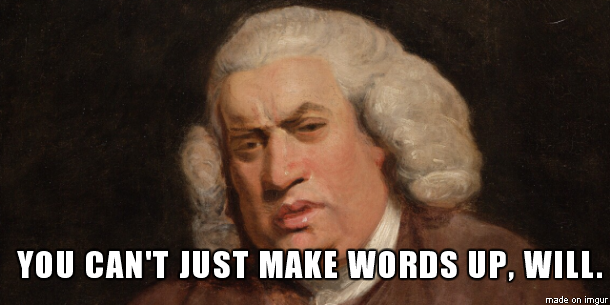Stories pt 2
Last time, I focused on the integral part of narratives in human culture and our proclivity to remember stories over rote memories or facts. This week, I’ll be moving into a discussion more about the individual implications of that. One of the biggest being justification vs motivation, as well as the slippery non-linear sequentiality of emotional cause and effect, and how our preferences are not something so easily explained or justified with logic.
First off, consider the difference between motivation and justification. Motivation is agency, the drive to do something, be it good or bad. “I’m hungry”, “I’m angry”, “I want more money so I can be comfortable”, these are all motivations. Justification, on the other hand, is ex post facto. It is an explanation for what was done. They can be similar, just swap the past tense for most of those, but there are plenty of things that are justifications that may not have been true motivators. “Because I could” is my favorite of them. Within the entirety of human action and agency, with an infinite number of choices you could have made, you elected to do the thing you did exclusively because “you could”? Unlikely to the point of absurdity. Instead, you were likely bored, curious, angry, or just wanted the attention. Put logically, it might be clear in that sense. However, if you really want the insight, consider it as a narrative. That person was creating a story. A story where they may commit acts that could have an impact on others: shocking, impressive, annoying, amusing, etc. because of the need to be at the core of a narrative. This is far more compelling than a logical examination of the choices at hand and determining which, from a utilitarian standpoint, most efficiently achieves one’s purposes.
Next up, the concept of our emotional cause and effect. We are often emotionally affected by events in a way that builds on historic events. Victims of childhood trauma are a good example. They may be triggered by a potentially innocuous detail that is associated, even in a Pavlovian manner, to an unpleasant result, historically. But as we progress from the obviously terrible to the more gray and ambiguous, the nature of the trouble gets less clear. Suddenly, the severity of the initial experience may not actually be as bad as subsequent ones, so the perspective changes and the negativity is projected backwards. Exemplifying this is tricky, but it could manifest as simply as a preference for a brand or style of food over another based on a bad breakup of someone who used to frequent such a place.
Now, the nature of misanthropy or the proud assertion of a lifestyle that wasn’t even necessarily intentional becomes understandable: It has to fit the narrative. If we’re hung up on the victim card, then “Woe is me, everyone hates me and I’ll never be happy” is a grand justification for life not going as you planned. Likewise, if being a victim isn’t quite as appealing, then the exact opposite works out nicely: “I’m quite happy being a bachelor. I love spending time organizing my hexagonal wrenches. That’s a delightful use of my time. I don’t even like people that much”. These are just two of the examples of narratives to explain people’s seemingly illogical behavior. These obviously aren’t the entirety of all human personalities. Some folks legitimately get screwed by life or are roundly hated by their peers and some folks really like sorting hex wrenches. I encourage getting help if you’re in any of those groups.
This all figures into our preferences and relationship to circumstance. For some, the assertion of preferences is paramount to establishing identity (there’s definitely an article about that), for others, it’s a coping mechanism to handle our frustrations and experiences. All of them are integral to the Gordian knot of stories that we weave around the events in our lives to make sense of them, to organize them and to justify ourselves, as well as our actions, so that everything conforms to the story we’re telling. So, next time you find yourself looking at someone’s Facebook post or inexplicable statement in public, ask yourself “what’s their narrative and how does this fulfill it?” instead of mashing the reply button and unleashing a torrent of abuse or screaming in their face about the inanity of “half-half-caff, half decaff, so, like, quarter-caff?”
-Kendric



